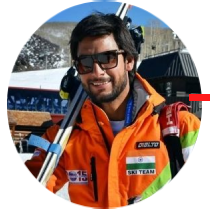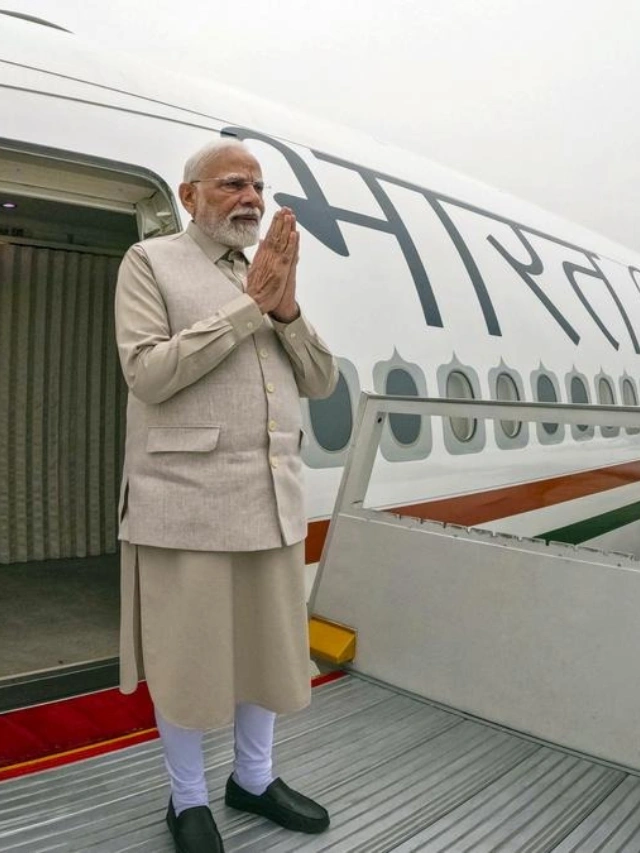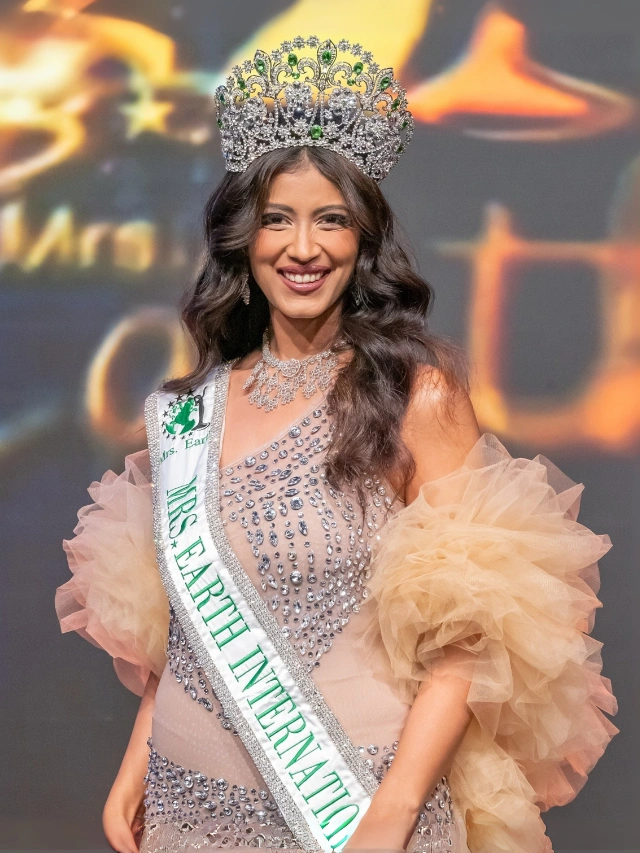Arif Khan
Among India’s 1.3 billion people, Arif Khan stood alone at the 2022 Winter Olympics as the country’s only representative. This alpine skier from Kashmir broke new ground and made history. He became the first Indian athlete to qualify for two events—slalom and giant slalom—in a single Olympic Games. His performance in Beijing proved exceptional when he finished 45th in giant slalom, setting a new record for India’s best result in Winter Olympics history.
CEO’s | Actors | Politicians | Sports Stars
The story of Mohammed Arif Khan’s success in winter sports keeps growing. He qualified for the 2026 Winter Olympics in the slalom event. This second Olympic qualification cements his position as a groundbreaking athlete in Indian winter sports. This piece tells the remarkable story of the national and South Asian slalom champion, from his early days in Kashmir’s mountains to his rise as India’s representative on the global Olympic stage.

Early Life in the Mountains of Kashmir
Growing up in Tangmarg and Gulmarg
The picturesque landscapes of North Kashmir set the stage for Arif Khan’s early years. Mohammed Arif Khan was born on March 3, 1990, in Goiwara, a tiny village in Kashmir’s Tangmarg area, just 30 minutes from Gulmarg, India’s winter sports capital. This small settlement sits among snow-capped mountains surrounded by woods. Heavy snowfall often blankets the sparsely populated village, where the air stays crisp and clean. Goiwara thrives on skiing traffic from Gulmarg during winter months, creating a natural bond with the sport that would shape Arif’s life.
Winter wonderland experiences defined young Arif’s childhood. The young boy was happy to watch from his window as October turned to November, looking for the first signs of snow. “I was always happy when November used to start,” he recalled, as it meant he could join his father Yaseen in the Pir Panjal ranges. These mountains, with their stunning beauty, became both his playground and training ground.
Kashmir’s unique geography left children with few recreational choices. “As children we used to play football and cricket, but there was no playground around us,” Arif explained in an interview. “Skiing was the only convenient sport for us”. This reality guided him toward the slopes, and he ended up taking a path few Indians had explored before.
First steps on snow at age four
The pivotal moment came in 1994 when Arif first tried skiing at age four. His father, Yasin Khan, introduced him to the sport through his ski equipment shop in Gulmarg, where he had run skiing and trekking tours since the 1980s. “We had to walk about 500 meters to the ski shop. And there was thick snow. My father had groomed a small ski slope just outside the shop. We started (skiing) at around 9:30 AM and went on for hours,” Arif recounted.
Natural talent showed right away. Yasin spotted something special when he first put Arif on skis. “Just the way he moved on the snow, it was so natural. His feet movement, body balancing, focus, everything was too good for his age. He was the youngest skier in Gulmarg as kids here usually begin when they are 7-8. I knew I had to let him go,” his father remembered. This natural gift helped Arif become junior national champion in slalom before his teens.
Challenging conditions never stopped young Arif. At eight years old, before the 1998 gondola installation, he would carry his equipment uphill for hours just to race downhill for ten minutes. The slopes needed manual preparation since no snow-beater machine existed until 1998. “I had a natural ability and an affinity for this sport,” Arif later reflected.
Influence of local skiers and Army teams
Disciplined foundations came from Arif’s schooling. His time at an Army school in Tungmarg, Kashmir taught him valuable lessons. “I’m an Army school student. The basic discipline skills and mental strength I have, are all due to the physical coaches from the Indian Army, who use to train us at school. They trained us so well, physically and mentally, that it actually built me as an athlete in life,” Arif acknowledged.
Competitive inspiration flowed from watching skilled athletes. “If I talk about when I was young and participating at the national level, I would follow the skiers from Himachal, Jammu & Kashmir and from the Army ski team. They were skiing better and faster than me and I would always try to keep up with them when I was younger,” Arif recalled. This drive pushed him to improve quickly.
Formative experiences in Kashmir carved his path forward. Back in 1973, Arif’s father Yaseen met the prominent Lt Col Narender ‘Bull’ Kumar, who led the Ski School in Gulmarg. Kumar, a giant in Indian mountaineering history, recruited helping staff, and Yaseen joined the team. This connection to India’s winter sports heritage inspired Arif to carry the tradition forward, making him the face of Indian winter sports globally.
Family Support and Personal Sacrifices
Arif Mohammad Khan family details
Behind every successful athlete lies a supportive family. Arif Mohammad Khan’s case stands out because his family’s support has been remarkable. His family back home has given him unwavering support that drives athletic success. His father, Mohammad Yaseen Khan, has shaped his talent since childhood. “My father has played the main role in my career. He raised me as an athlete and provided me with support whenever it was needed,” Arif said in an interview. This bond with his father became the cornerstone of his skiing career and shows how family values remain essential to who he is, despite his international success.
Father’s ski shop and early training
The entrepreneurial spirit of Yaseen Khan helped launch his son’s skiing career. Yaseen owns a ski shop in Gulmarg, one of Kashmir’s biggest and highest ski resorts, at Highlands Park. His Kashmir Alpine Ski Shop became Arif’s stepping stone into winter sports. The shop sits near three major slopes—Highlands Park Slope, Baby Slope, and 85 Slope—which created ideal conditions for his early training. “We didn’t have much income. There were few facilities. He struggled, but we remained consistent in making him learn,” Yaseen said about those early years.
Financial struggles marked Arif’s early career. Skiing costs a lot of money, and most of his funding came from his father’s ski shop earnings. Equipment approved by international federations costs about Rs 12 lakh. Special socks alone cost Rs 5,000, shoes around Rs 50,000, and helmets nearly Rs 2.5 lakh. “I emptied my savings. I emptied my friends’ savings too along with it!” Yasin said about funding his son’s dreams. Tourism slowdowns in Kashmir hit their main source of income hard.
Postponing marriage for Olympic dream
Personal sacrifices became part of Arif’s Olympic journey. He put off his wedding planned for September 2021 to focus on qualifying for the Beijing Winter Olympics. “I had to ask my fiancée and her parents if I could get one more year, which would help me in training and racing to make it to the biggest stage,” Arif explained. His fiancée supported his Olympic dreams. “The wedding can take place later, but being at the Olympics was a dream I have had in me for over 15 years,” he said, showing how much his sport meant to him.
The commitment paid off with his successful qualification. His father says they’re now getting ready for the delayed wedding, planning a feast for about 2,000 guests. This sacrifice shows the tough choices elite athletes face, especially those from countries that give little support to winter sports. “In a country like India, where winter sport is not so popular, you can hardly get any support and sponsorship or government funding,” Arif once said.
Turning down U.S. relocation chance
International opportunities came up during Arif’s career. Though details about a U.S. relocation chance aren’t well documented, Arif chose to stay in India instead of pursuing better-paying options overseas. This choice fits with his goal to promote winter sports in India and make Kashmir a world-class skiing destination. “When people hear I’m from India and I’m training and skiing and they are surprised… I say, no, this is wrong. I’m here to introduce my country as a winter sports destination,” he has stated.
Staying true to roots defines Arif’s character. Despite traveling worldwide, he keeps his cultural ties strong. “He is still a very rooted boy. Even today, he prays five times a day, no matter which part of the world he is in,” his father says proudly. His dedication to representing India and building winter sports facilities in his homeland shows values that go beyond personal success, making him an inspiration for athletes across the country.
Climbing the Ranks: National to International
First national gold at age 12
Early competitive success shaped Mohammed Arif Khan’s rise in skiing circles. Most children were still learning simple skills when Arif showed exceptional talent. He won his first gold medal in slalom at the national championship at just 12 years old. This remarkable achievement pointed to a special talent in Indian winter sports. His natural skill and years of practice on Gulmarg’s slopes set him apart from others his age.
Debut at FIS event in Japan
International exposure came next as Arif’s career took off. He made his international debut for India at 16, competing in a junior International Ski Federation (FIS) event in Yomase, Japan. His original appearance on the global stage saw him finish 23rd in the giant slalom competition. The experience was a great way to get direct knowledge about international competition standards. Arif has competed in more than 130 international events and has ended up as India’s premier alpine skier.
South Asian Winter Games victories
Regional dominance emerged in 2011 when Arif Khan grabbed two gold medals at the South Asian Winter Games. He won both slalom and giant slalom events at this competition in Uttarakhand. Dehradun and Auli hosted these games, which remain the only South Asian Winter Games held so far. His wins proved he was the top winter sports athlete in South Asia, especially since he competed against athletes from countries with more developed winter sports programs.
World Championship appearances
Global competitions became part of Arif’s regular schedule after his regional success. He first competed in the FIS World Ski Championships in 2013 and finished 59th in slalom and 91st in giant slalom. He couldn’t advance beyond qualifying stages at first. His dedication led him to compete in three more world championships. His breakthrough came at the 2021 edition in Italy, where he secured 45th position in giant slalom. This result stood out because he qualified for a final in a world championship event for the first time. He also represented India at the 2017 Asian Winter Games in Sapporo, which added to his international experience.
The Road to the Olympics
Arif Khan Olympics qualification experience
Historic qualification shaped Mohammed Arif Khan’s path to the Winter Olympics. He became the first Indian to qualify for the Beijing 2022 Winter Olympics in the slalom event at a Dubai qualifier in November 2021. His qualification came from an unexpected venue – an indoor, refrigerated ski arena that makes snow inside a UAE shopping mall. Arif expanded his achievements a month later by securing a quota in the giant slalom event at a Montenegro competition. This remarkable achievement made him the first Indian athlete to qualify for two different events in the same Winter Olympics.
Beijing 2022: Slalom and Giant Slalom
Olympic performance demonstrated Arif’s determination at the global stage. He competed in the men’s giant slalom on February 13 and men’s slalom on February 16 at Beijing 2022. Despite poor visibility and constant snowfall, Arif secured 45th place in giant slalom with a combined time of 2:47.24 seconds (1:22.35 in the first run and 1:24.89 in the second). This stands as India’s best finish in men’s giant slalom at the Winter Games, surpassing Jeremy Bujakowski’s 65th place at Grenoble 1968. The slalom event brought disappointment when Arif recorded a DNF (Did Not Finish) after a strong start but veered off course near the end.
Challenges of funding and infrastructure
Financial hurdles almost derailed Arif’s Olympic dreams. He missed the 2018 Pyeongchang Olympics qualification when his crowdfunding fell short by INR 1.5 lakhs. Professional skiing demands substantial investment – equipment approved by international federations costs around Rs 12 lakh. Specialized socks cost Rs 5,000, shoes about Rs 50,000, and helmets approximately Rs 2.5 lakh. Arif noted that “to be a medal contender, you require at least 10 years to train and prepare, budget and funding”.
Crowdfunding and JSW Sports support
Vital backing helped realize Arif’s Olympic dream. JSW Sports’ sponsorship covered his Beijing trip expenses. The Sports Authority of India provided Rs 17.46 lakh through the Target Olympic Podium Scheme (TOPS) for his European training. This support enabled a 35-day European camp with his coach and physiotherapist. Arif has qualified for the 2026 Winter Olympics in Milano Cortina’s slalom event. He now aims to secure qualification in Giant Slalom, hoping to represent India again in two disciplines.
Legacy and the Future of Indian Winter Sports
The snowy slopes of Kashmir shaped Arif Khan’s incredible trip to the Winter Olympics, showing what pure determination can achieve against tough odds. He started skiing at age four on makeshift slopes near his father’s ski shop and carved a unique path few Indians had ever taken. His achievements stand tall – he became the first Indian to qualify for two events in a single Winter Olympics and secured the country’s best-ever finish in giant slalom. These milestones definitely rewrote Indian winter sports history. His steadfast dedication helped him overcome financial struggles and limited infrastructure to become a groundbreaking figure. He continues to redefine the limits of possibility with his recent qualification for the 2026 Winter Olympics.
Family support formed the foundation of Arif’s success. His father spent all his savings, and Arif postponed his wedding to chase his Olympic dream. These personal sacrifices show what it takes to excel in winter sports, especially from a country with minimal institutional support. Notwithstanding that, his story proves athletes from non-traditional winter sporting nations can compete at the highest level with enough determination and support.
Arif’s story reaches beyond his personal victories. His presence at international competitions challenges how people view India in winter sports. People used to be surprised seeing an Indian skier, but Arif would tell them: “No, this is wrong. I’m here to introduce my country as a winter sports destination.” His achievements now light the way for future Indian winter sports athletes and showcase Kashmir’s potential as a global skiing destination.
The boy from Goiwara surpasses typical sports success stories. He stays connected to his roots and cultural heritage despite his international exposure. His story shows how talent flourishes in unexpected places when fueled by passion and persistence. As he prepares for the 2026 Winter Olympics, one thing remains clear – he has altered the map of Indian winter sports. His journey proves that whatever your geography or resources, dreams can become reality with enough heart and hard work.
Key Takeaways
Arif Khan’s extraordinary journey from a small Kashmir village to becoming India’s first Olympic alpine skier demonstrates how determination and family support can overcome seemingly impossible odds in winter sports.
- Natural talent emerged early: Started skiing at age 4, won national gold at 12, showcasing exceptional ability despite limited resources and infrastructure in India.
- Historic Olympic achievement: Became first Indian to qualify for two events in same Winter Olympics, finishing 45th in giant slalom—India’s best-ever result.
- Family sacrifices fueled success: Father emptied savings from ski shop, Arif postponed wedding for Olympic qualification, highlighting extraordinary personal commitment required.
- Financial barriers nearly derailed dreams: Equipment costs ₹12 lakh, crowdfunding efforts initially fell short, until JSW Sports and government support enabled Olympic participation.
- Legacy extends beyond personal success: Challenging global perceptions about India as winter sports destination while inspiring next generation of athletes from Kashmir.
Arif’s story proves that with unwavering dedication and support, athletes from non-traditional winter sporting nations can compete at the highest international level, forever changing the landscape of Indian winter sports.
FAQ
Who is Arif Khan and what is his connection to the Olympics?
Arif Khan is an Indian alpine skier who made history by becoming the first and only Indian athlete to qualify for two different alpine skiing events at the Winter Olympics. He represented India at the 2022 Beijing Winter Olympics in Slalom and Giant Slalom. Born in Jammu and Kashmir, he has been a prominent figure in Indian winter sports. His qualification was a major milestone, highlighting India’s presence in winter sports on the global stage. Arif Khan’s journey has inspired many aspiring winter sports athletes in India, where skiing is still a developing sport.
How old is Arif Khan?
As of 2025, Arif Khan is 34 years old. He was born in 1990 in Gulmarg, Jammu and Kashmir, India. Growing up in the snow-covered mountains of Gulmarg, he developed a passion for skiing at a young age. His early training in the challenging terrains of the Himalayas helped him become one of India’s top winter sports athletes. Over the years, he has competed in multiple international skiing championships, making his mark as India’s leading alpine skier.
What are Arif Khan’s achievements as a skier?
Arif Khan is India’s most accomplished alpine skier, having competed in numerous international skiing events. His biggest achievement was qualifying for the 2022 Winter Olympics in Beijing, making him the only Indian athlete to compete in alpine skiing at that event. He has also participated in the FIS World Championships and various international skiing competitions in Europe and Asia. Arif has won several national skiing championships in India and continues to promote winter sports in the country. His dedication has paved the way for future Indian skiers to pursue careers in international competitions.
What is Arif Khan’s biography and early life?
Arif Khan was born in 1990 in Gulmarg, Jammu and Kashmir, a region known for its ski slopes. His father ran a ski equipment shop, which allowed him early exposure to the sport. Arif started skiing at the age of 4 and won his first national championship at 12. He later trained in Europe and North America, competing in international events. His perseverance led to his historic qualification for the 2022 Winter Olympics. Despite challenges such as lack of funding and limited infrastructure for winter sports in India, he has remained committed to representing his country globally.




